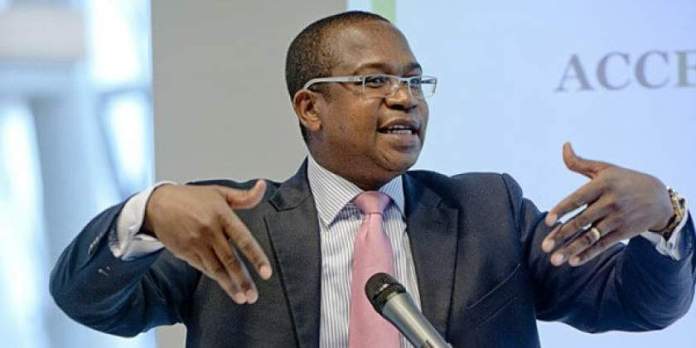Employment costs to gobble finance minister Ncube’s ZW$968,3 billion budget

Minister of Finance Mthuli Ncube
Economic growth revised down to 4,6%
FINANCE minister Mthuli Ncube Thursday announced 53% of his ZW$968,3 billion supplementary budget to cover the second half of this year will be gobbled up by government’s employment costs.
The blueprint also dumped civil servants, who will continue to reel under pressures of having anything above ZW$50 000 monthly earnings being taxed.
According to Ncube, by year end, a total of ZW$832,7 billion would have been spent on employment costs alone constituting more than half of the budget followed by use of goods and services at 18% and social benefits at 7% .

Presenting it in parliament, Ncube said the supplementary budget was unavoidable due to rising inflationary pressures.
“The revision is necessary to allow spending agencies to meet increasing costs of undertaking originally budgeted programs and projects that will ensure the 2022 objectives are met.
“Revenue collections to year end are now projected at ZWL$1,7 trillion, while expenditures are now estimated at ZWL$1,9 trillion. This is against the approved budget of ZWL$968.3 billion, entailing additional spending of ZWL$929 billion,” he said.
Capital projects are set to gobble a paltry 19% of the budget.
The developments come at a time when the government is facing immense pressures posing a high risk of crippling civil servants strikes over salary increase demands.
Ncube’s supplementary budget saw him moving to widen the local currency remuneration tax free thresholds to just ZW$50 000 per month, a figure likely to maintain workers within the highly taxed margins.
“The proposed supplementary budget has a financing gap of ZWL$157,5 billion (1.5% of GDP) which will be met through issuances of treasury bills and domestic loans.
“The issuances include the impending US dollar denominated bond of US$100 million to be issued through the Victoria Falls Securities Exchange (VFEX) for infrastructure development This will also be complemented by special drawing rights (SDR) drawdown equivalent to ZWL$60,6 billion,” he said.
He however said economic performance during the first half of 2022 reaffirmed the positive growth trajectory as projected in the 2022 National Budget.

The treasury boss also revised economic growth down to 4, 6% owing to both internal and external inflationary pressures.
“The downward revision is mainly arising from reduced output from the 2021/22 agricultural season, compounded by continued depreciation of the local currency and rising inflation. The impact of geo-political developments is also weighing down on the growth potential of the economy,” Ncube said.






